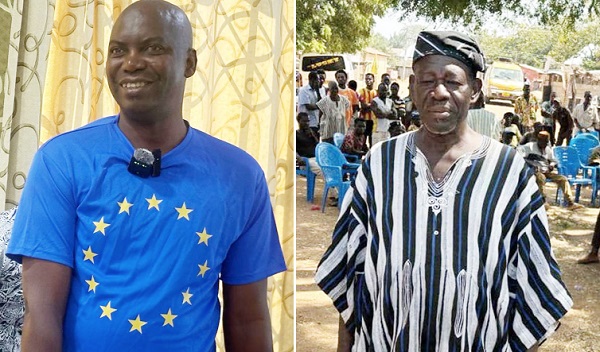Residents of Duong in the Nadowli-Kaleo District in the Upper West Region have expressed their appreciation to the European Union for its support to the community in combating the effect of climate change and adapting to it.
They said through the teaching they received through Conservation Agriculture under the Resilience Against Climate Change (REACH) project being implemented by the German Development Agency (GIZ), they have been able to learn new ways of improving their farm yields without harming the environment.
REACH is one of the programmes under the European Union Ghana Agriculture Programme (EUGAP) being funded by the EU and the German Federal Ministry for Economic Cooperation and Development. The project duration is from 2017 to 2025.
EUGAP is a €147-million project being implemented in 14 districts in three regions in the northern part of the country. The beneficiary regions are Upper West, which has 11 districts; North-East, one, and Savannah, two districts.
Testimonies
During a visit to the Duong community in the Nadowli-Kaleo District, the residents, who are mostly farmers, praised the project for introducing them to the concept of a Community Action Plan (CAP), one of the activities under REACH that has helped them understand the use of effective planning.
A farmer, Thomas Banue, said through CAP, they had been able to identify some of the resources available in the community and how they could maximise their use for the benefit of all.
He said through the community engagements, they were able to develop an agenda for the community by prioritising their needs.
For him, one education that stood out through the engagement was the need to sustainably manage the land to ensure that future generations also benefit from it.
Mr Banue said the project had equipped them with the skills and knowledge on how to adapt to the changing climate and environmental sustainability.
Blueprint
The Assistant District Planning Officer, Allanfoy Ziemoh, said the CAP has helped the assembly to fashion out a development blueprint for 30 communities within the district that could be used to seek support from development partners.
He said with the document, it would be easier for the communities to approach non-governmental organisations for support, while the development partners would not need to do community assessment before coming to their aid.
He explained that CAPs were developed using the guidelines from the National Development Planning Commission in collaboration with the Land Use and Spatial Authority.
One advantage of the CAPs, he explained, was the involvement of the community in the development agenda of the communities and how to prioritise projects based on the needs of the people.
That, according to him, has helped in reducing tension between the communities and the assembly in the project implementation.
In the agricultural sector, through Conservation Agriculture (CA), also under the REACH project, the communities have been exposed to new ways of farming, using the same resources available to them to increase their yields while protecting the land.
CA is a farming approach that aims at improving and sustaining the productivity of the land in an environmentally friendly manner. It adopts three interlinked principles, which are minimum or no tillage, crop diversification or rotation of permanent soil cover.
The project has established demonstration farms in all the communities to showcase the advantages of CA to the farmers.
The Nadowli-Kaleo District Agric Extension officer, Vitalis Karima, told the Daily Graphic during a visit to the demonstration farm that many farmers were adopting the CA following the success of the demonstration farm.
He said even though not all of the farmers availed themselves of the education, through the testimonies of those who took part in the demonstration exercise, the rest were also adopting it.
He said due to the peculiar nature of the weather in the region, coupled with the effects of climate change, CA was the cheapest way to adapt to climate change to sustainably manage the land.
He added that it was less expensive, as the farmers would not have to plough the land for planting, which would also save them some money.
Appreciation
The Upper West Regional Director of Agric, Abu Huudu, said the programme had helped a lot of smallholders in the region to improve their livelihoods and provided jobs for lots of people.
He said through the project, some agribusinesses within the value chains of the targeted crops have also improved their businesses and acquired certificates to export to the international market.
The project focused on seven crops: rice, groundnut, mango, sorghum, cashew, soybean, and vegetables.

